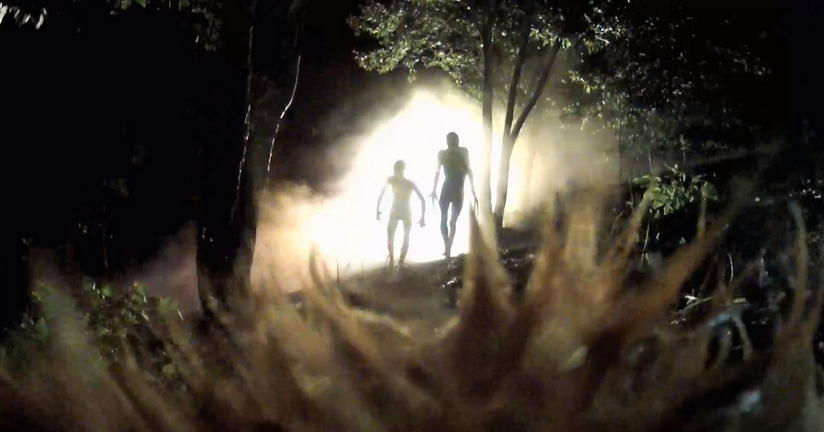In which I review a movie that's streamable on Netflix.
In case it wasn't already apparant, I've been on kind of a Clive Barker kick lately. I watched Nightbreed earlier this week for today's AdapNation, and then again tonight to show Becky what I've been rambling about. I started reading another novel of his, Weaveworld, and wouldn't be all that surprised if I started rewatching Hellraisers before too long.
There's just something about the man that keeps me coming back for more. It all has to do with his dark, grotesque, invariably horrific but enchantingly engrossing imagination. Sure, the scale of it all often outstrips his execution, but that's part of the charm. He creates worlds that are so utterly unlike anything that have come before them nor any of the pale imitations that will chase after them: worlds that even he can't quite seem to pin down definitively.
In none of his works is this more the case than in Nightbreed: the 1990 slasher that was supposed to be "the Star Wars of horror films." In it, troubled mechanic Aaron Boon dreams nightly of Midian - an underground city of monsters where his mortal sins will be forgiven and he will live forever. When his psychotherapist Dr. Decker convinces of him that he's unknowingly murdered over a dozen people, he seeks out Midian as his refuge, becoming one of the Nightbreed: the grotesque creatures that dwell there.
Now, I won't pretend for a second that Nightbreed is a good movie, because it patently is not. Its characters are underdeveloped, its narrative is unfocused and its direction is decidedly subpar. What it lacks for in execution, however, it makes up with its fascinating portrayal of the deformed, despondent and outcast. It is an unnerving, often contradictory and yet earnestly spun story of acceptance that no other mind in the world could have come up with.
Nightbreed does have one thing over Barker's other, more celebrated films, however. It is a visual masterpiece: exerting in its every frame the kind of look that Hellraiser was desperately gunning for and falling just short of. The Cenobites were so sparingly augmented with nails and wire that they lacked the visceral appeal that they were afforded in later installments. The only one with any real visual umph was Pinhead himself, and he's easily outclassed by the excessively quilled Shuna Sassi:
It's essenially X-Men by way of The Thing: striking that paradoxical mix of disgust and envy that only monsters can evoke. Barker made every last cent of his considerably upgraded budget count, using it to create sometimes fascinating, sometimes disturbing but invariably memorable characters with the skillful use of makeup and practical effects.
While the skinned Frank and Julia from the first two Hellraisers often had a dribbley look to them reminiscent of refrigerated sweet and sour sauce, a more modestly envisioned Narcisse lacks this visual defect. His scalped head retains the membranal sheen of skinlessness without the comical excess of goo.
So while I can't recommend it as a good film, I will recommend it as a morbidly fascinating one. Fans of Hellraiser or The Thing will find gory delight in the visualizations of the Nightbreed themselves, while fans of X-Men will find a much darker take on a familiar subject. It's at least worth checking out once for its uniquely monstrous world, just as long as you know the quality of movie that you're getting yourself into.
Rating: 5.5/10
Buy on BluRay: Probably not.
So what is your favorite movie based on the works of Clive Barker? Share your thoughts in the comment section below.
Join the Filmquisition on Twitter (@Filmquisition) or by subscribing to this blog.













































